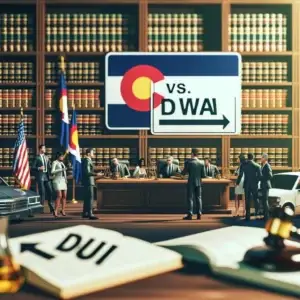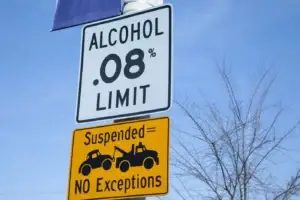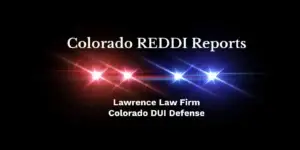The focus of anyone facing criminal charges is jail. A punitive sanction to confinement can cause major disruptions in a person’s life. The possible penalties for a criminal offense can be more restrictive than jail.
A defendant can be placed on probation or be required to pay a fine. Additionally, a defendant may be required to pay restitution. Restitution can be a massive part of a criminal case. New case law was announced in 2023 that changes to procedure for restitution in Colorado criminal courts.
Understanding the law surrounding restitution when dealing with a criminal case is important. Speaking with a Colorado Criminal Defense attorney will always benefit you in a criminal case.
What is Restitution in Colorado Criminal Law?
Restitution is an order by the Court. A defendant must pay for any harm caused by the criminal conduct. Restitution means paying a victim for any financial losses or harm caused by an offender.
This payment can be calculated and repaid with money. A way to compensate the victim for the harm they have suffered. The statute defining restitution is found at C.R.S. § 18-1.3-602.
Proximate cause is a crucial part of the definition. A legal term of art that focuses on the relation of the loss as well as foreseeability. For example, a drunk driver that rear-ends a vehicle could foresee the victim needing medical treatment. If someone gets divorced because of a car accident, it may not be expected or considered directly connected to the accident.
Important to note that traffic tickets and DUI cases can also have restitution. The law says that in non-felony Title 42 cases, no restitution can be ordered if the Defendant has insurance.
Restitution is also focused on pecuniary loses. This means tangible things that have a dollar amount attached to it. Pain and Suffering and lose of enjoyment of life would not be awarded during a restitution hearing.
How People v. Brassill Impacted Colorado Restitution
The Colorado Court of Appeals issued an opinion in February of 2024 that impacted that procedure of restitution. The key factor being time restrictions.
In that opinion, the court wrote Colorado’s restitution statute imposes time-sensitive obligations on the court and the prosecution. People v. Brassill, 2024COA19 at ¶ 18 (Colo. 2024).
The statute places an obligation on the sentencing court to ensure that restitution is resolved within ninety-one days from the entry of conviction. Id at ¶ 20.
A prosecutor is required to file the information in support of a motion for restitution, the amount of proposed restitution before conviction enters or no later than 91 days after. The Brassill Court noted that these guidelines were not historically embraced.
The standard prior to this decision was that prosecutors would often reserve restitution at the sentencing hearing. They would then file a request for restitution at a later date, and the result was a massive delay in resolving the issue of restitution.
The Brassill Court condemned this practice and issued a directive to sentencing courts. At the time of sentencing, the trial judge should be prepared to put in place a plan that enforces the prosecution’s deadlines. If the deadlines are not met, the court is required to order no restitution is required.
In 2024, the Court added conditions that a prosecutor must exercise reasonable diligence in obtaining restitution prior to sentencing. This means the prosecution will have to present good cause at the time of sentencing as to why restitution is not determined. If they are unable to show good cause, the trial court may deny any request for the ninety-one-day extension.
Why is this Brassill’s Court Opinion Important?
A defendant that is convicted of a criminal offense is subject to being jailed, placed on probation, or fined. Restitution is also a component of any criminal conviction. Arguably, an extremely important part of any criminal punishment.
The maximum possible jail sentence for a first time DUI offense is one-year in jail. The maximum fine is $1,000. If an uninsured driver is involved in a driving under the influence accident, they can be required to pay for any injuries or damages they cause.
When dealing with car accidents, the amount of restitution can easily dwarf the maximum fine and costs. Estimates for vehicles and initial hospital bills are not hard to obtain either, so a DUI defendant should be aware of the full amount of any restitution request prior to taking a plea agreement.
The Court of Appeals Court wrote the prompt resolution of restitution serves the interest of prosecutors and defendants. Defendants often resolve their cases by plea agreement. These types of agreements frequently happen the day before or of an arraignment.
Not having the information concerning restitution could result in a defendant accepting a deal that requires them to pay an unknown sum of money. Victims are also subjected to length delays without finality to their harm, and Courts are bogged down with additional hearings.
A criminal defense lawyer will be able to analyze any restitution request to determine if it is valid.
How does this Impact Criminal Defendants in Colorado?
The biggest impact is it places obligations on the prosecution. This obligation will hopefully permit defendants to be fully advised at the time of accepting a plea agreement of the actual amount they are agreeing to pay.
It also potentially benefits a criminal defense client if the prosecution is not diligent in their efforts. Restitution is an important part of any criminal case, and a defendant is entitled to due process at every step of the litigation.
Always Speak with a Criminal Defense Attorney.
The opinion helps to highlight one of the core aspects of a criminal law. It is complicated. Defendants that try to represent themselves are often playing a game that they just do not know the rules too.
Speaking with a criminal defense attorney is important. Our firm routinely provides free consultations to defendants to help them understand their situation and explain how we can help.
We specialize in defending DUI and domestic violence cases, as well as handling all types of felony and misdemeanor criminal defense.
We regularly practice in Denver Metro Courts, such as Arapahoe, Douglas, Adams, Elbert, and Jefferson County.





